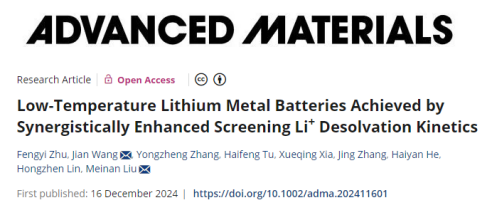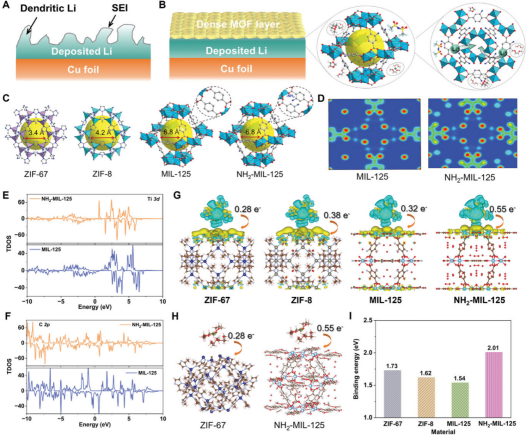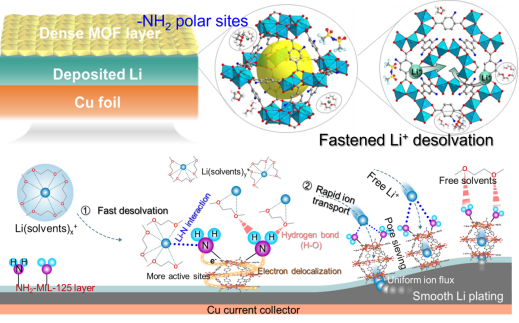Recently, the research team on advanced energy storage materials and devices from the School of Resources, Environment and Materials of Guangxi University has made great progress in the field of low-temperature lithium battery research. The research result was published in the journal Advanced Materials under the title of "Low-Temperature Lithium Metal Batteries Achieved by Synergistically Enhanced Screening Li+ Desolvation Kinetics". The corresponding author of the paper is Professor Liu Meinan, and Guangxi University is the first completion unit of the paper. The project research was supported by the National Natural Science Foundation of China and the Guangxi University Research Fund.

Lithium metal anodes have higher capacity and lower potential, show higher energy density than current commercial graphite anodes, and are considered the best material for the next generation of high-energy-density batteries. Despite the obvious advantages of lithium metal anodes, lithium metal batteries have serious problems with dendrites and dead lithium, especially in low-temperature environments, which seriously hinders the practical application of metal lithium batteries.

Different from the commonly used electrolyte engineering strategies, Professor Liu from GXU collaborated with Dr. Wang Jian from the Helmholtz Institute in Germany to jointly propose a new interface collaborative active desolvation concept. By designing and introducing porous metal-organic frameworks (MOFs) modified with electron delocalization polar groups, the polar electron donor chemical groups significantly modulate the lithium-ion desolvation/diffusion behavior, demonstrate efficient lithium-ion desolvation process and improve the lithium-ion interface transport kinetics, effectively alleviating problems such as the growth of metallic lithium dendrites at low temperatures, and facilitating the low-temperature application of metallic lithium batteries. Even under high load or low-temperature environments such as -20°C, the prepared Li-NCM811 full battery can still maintain 130 cycles with a capacity retention rate as high as 97%, providing the possibility for practical applications of low-temperature lithium metal batteries.

Professor Liu led the team to carry out a large number of research on the current problems of poor environmental adaptability of lithium batteries in practical applications, such as rapid attenuation of low-temperature batteries, unstable interface of high-temperature batteries, and dissolution of positive metal ions. With Guangxi University as the first unit, several academic papers were published in journals such as Advanced Materials, Advanced Functional Materials, and ACS Energy Letter. So far, Professor Liu has published more than 100 SCI papers, has more than 20 authorized patents, and has undertaken more than 20 projects from the National Natural Science Foundation of China, the Ministry of Science and Technology, the Chinese Academy of Sciences, etc. He has been invited to serve as an editor of academic journals and an independent reviewer or arbitrator.
 ???????????????????
>
Content
???????????????????
>
Content
 ???????????????????
>
Content
???????????????????
>
Content




